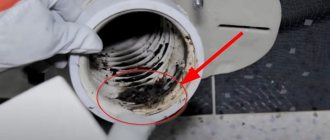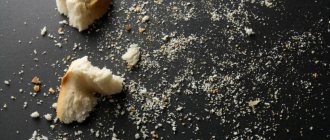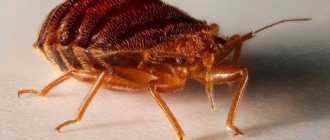An integral part of any country toilet is the smell. Is there a remedy that will help you forget about this problem for a long time? Let's look at the advantages and disadvantages of various methods of eliminating odor in the most necessary place on the site.
The toilet can be sent to the far corner of the site and hidden from prying eyes by decorating it, for example, with climbing plants. However, even entwined with flowering vines, it will give itself away as far from a floral aroma.
- 11 plants that will disguise an unsightly fence and significantly transform the area
Review of popular climbing plants and the secrets of their cultivation.
There are several ways to get rid of the unpleasant odor in your country toilet. Let's name the main ones:
- ventilation system,
- mechanical cleaning,
- traditional methods,
- chemicals,
- biological agents.
Let's look at each of them in more detail.
Method 1. Ventilation system
To get rid of the smell in your country toilet, you first need to understand the cause of its origin. Near each such structure (or directly under it) there is a cesspool in which urine and feces accumulate. It is the cesspool that becomes the main source of the stench. The bacteria that are there release various gases when decomposed. Some of them, such as hydrogen sulfide and ammonia, have a rather unpleasant odor. This means that in order to eliminate this “aroma”, you need to reduce the concentration of gases in the cesspool and remove them outside. This can be done with the help of ventilation, which should be in both the cabin and the cesspool.
Ventilation must be provided at the stage of construction of a country toilet. However, if you don’t have one, we recommend that you start building it as quickly as possible, especially since this work does not require any special investments or efforts.
The ventilation system in the toilet stall works due to the natural movement of air flows. To stimulate the movement of air masses, two holes are needed: one at the bottom of the cabin, the other at the top. Warm air will rise up and exit through the hole, and from below it will be replaced by fresh air from the street.
Make a small window on the back or front wall, 10-15 cm from the ceiling. Cut the lower holes on the side walls at a height of 20-25 cm from the floor. To protect against mosquitoes and other insects, seal all openings with fine mesh.
However, ventilating the cabin is not enough - you need to take care of creating ventilation in the cesspool. To construct it, you will need a pipe (metal or plastic) with a diameter of at least 100 mm.
Make a hole in the cesspool box equal to the diameter of the pipe and lower it there by 50-70 cm. Seal the hole. Install a protective canopy on the top that will protect the ventilation from precipitation and debris. The ventilation pipe should be 50-70 cm higher than the roof of the toilet. Paint the protruding part with black paint. A pipe heated by the sun will create additional draft, and gases will leave the cesspool faster.
The disadvantages of the ventilation system are that it does not completely eliminate odors, so in combination with it you need to use other odor protection products.
Smart technology
Modern industry offers technical means of air purification from various odors, for example the following:
- Ionizer. With the help of an ionizer, small particles of tobacco smoke settle on the floor. Thanks to this, harmful substances from tobacco smoke do not enter the human respiratory system.
- Hood. The hood is installed in smoking areas. Exhaust fans, which are installed in a window or in a ventilation hole, are often used as exhaust hoods.
- Air conditioner. The latest expensive models have an air purification function. This device eliminates the problem of tobacco odor very quickly.
- Humidifier. The device not only creates optimal humidity in the room, but also purifies and aromatizes the air.
To improve the air quality in your apartment, just buy one of the devices and turn it on.
Method 2. Mechanical cleaning
The “aroma” of a country toilet is given by the contents of the cesspool located underneath it. It would seem that the most correct solution in this situation is to get rid of waste. No content - no problem. And all the work will be done without your participation - you just need to call a vacuum cleaner. However, in practice, this method of odor control has the greatest number of disadvantages.
Disadvantages of mechanical cleaning of a country toilet:
- Considering the small areas of summer cottages and the location of the toilet (usually the farthest corner of the yard), it is quite difficult to provide a tank truck with free access to the cesspool.
- No matter how carefully a sanitation specialist performs his work, the contents of the toilet will still partially end up in the area adjacent to it, and you will have to clean everything up.
- If the volume of the cesspool near your toilet is small, then you will have to remove waste quite often. And since sewerage services now cost a lot, this can become a significant item in the family budget.
Fighting dirt on the toilet
If the dirt has long been ingrained or they simply forget to wash it out because it is difficult to get to (under the toilet rim, under the seat, in the siphon or in the drain), the following odor absorbers will help us:
Soda and lemon juice
If an unpleasant odor has ingrained itself into the walls and floor, you can get rid of it by mixing these two ingredients in equal quantities:
- stir until a paste is obtained;
- spread the paste on the floor near the toilet or wall;
- leave it like that for a quarter of an hour;
- pour table vinegar into a spray bottle;
- spray it on the paste and wait a little until the reaction ends;
- collect the product with a cloth.
The soda will absorb, the vinegar will break down the aroma particles, and the lemon will add freshness to the toilet room.
Soda and vinegar
You need to mix two cups of water and a teaspoon of soda. Pour in a tablespoon of vinegar. Add about twenty drops of aromatic oil there. Mix all. Pour the resulting mixture into a spray bottle. Use it as soon as the need arises.
Method 3. Plant residues
Let's move on to folk remedies for eliminating odors in a country toilet. Their main advantage is accessibility and lack of cash costs. Let's start with vegetation.
What any summer resident has in abundance is plant residues. Mown grass, the ubiquitous nettle, tomato shoots and tomato tops - all this unnecessary vegetation was used to eliminate the smell in the toilet by our ancestors. Add grass clippings to the hole after each visit to the toilet, and nettles and tomato leftovers once a week. Tomato tops will not only eliminate the unpleasant odor, but will also get rid of flies, which are another headache for owners of country toilets.
The disadvantage of using plant residues is that they will very quickly fill the entire space of the cesspool. Because of this, you will more often have to call a sewer to remove waste. And it’s not possible to completely get rid of the smell.
Compact toilet: country option
Many city dwellers, who rarely leave their apartments for their dachas, have a question about how to solve the problem with the toilet. The area is often small, and for some reason it may be difficult or impossible to dig a hole. A dry toilet may be a solution, but it also has many disadvantages - high cost, odor, problems with disposal, etc.
Folk remedies come to the rescue. The solution could be to create a peat toilet: a layer of peat briquettes is laid out in a plastic or metal container. After each use, you should pour a small layer of peat filler into the container, which absorbs odor and isolates the contents from the air.
Among the advantages of such a dry design are compactness, absence of fumes and odor, and environmental safety.
Another feature of a dry peat toilet is that the compost processing process here occurs quickly. As the container is filled, it should be emptied into a compost pit, and the resulting biomass can be used within a year.
For a compact toilet, it is better to use high-moor peat, which absorbs odors more effectively and speeds up the waste recycling process
Despite the fact that the topic under discussion is somewhat piquant, every summer resident is forced to solve a similar problem. The most environmentally friendly solution to the problem of getting rid of the stench in a country restroom will be the use of folk remedies. Speaking about which folk method is the most effective, it should be noted that success can be achieved only with the integrated use of means tested by time and practice.
Method 4. Ash
Another popular folk method that helps get rid of the smell in an outdoor toilet is ash. This could be burnt plant debris, ash from the stove, or what’s left of a fire. Grind up the combustion waste and pour it into a bucket, which you place in the toilet. After each visit to the latrine, place one or two scoops into the hole. The ash will get rid of the smell and at the same time cover the unsightly contents of the toilet.
The disadvantage of this method is that not always and not everyone has ash available, especially in the required quantity.
About the dangers of flies
Flies are annoying and very unpleasant. In addition, they can carry various diseases, including dysentery and even cholera. They fly everywhere, land on excrement, garbage, and various dirty surfaces. The legs of flies are covered with small hairs, onto which dirt, parasite eggs, and bacteria cling. And the fly flies everywhere into the premises, lands on food, people, dishes, leaving everything that has stuck to it.
Appearing in early spring, they lay eggs in moist organic matter: manure, rot, excrement. Then these eggs hatch into larvae called maggots. And flies hatch from the cocoons of maggots.
Flies live for only a month, but during this time each of them manages to lay about 2000 eggs. This is their reproduction rate. All summer these insects buzz around, spreading diseases.
Method 5. Peat
Another material that helps eliminate the unpleasant odor coming from the country toilet is peat. By constantly adding it to the cesspool, you can not only get rid of unnecessary aroma, but also, as in the case of tomato tops, get rid of annoying flies.
The disadvantage of this product is that not everyone has the opportunity to get peat for free. And regularly purchasing special peat mixtures that are used for dry closets is not the cheapest pleasure.
My personal invention
The filling level of a cesspool is perfectly reduced by... trees. My pit is lined with bricks with gaps along the top of the masonry. The moisture partially goes into the ground, and the drainage is located at such a level that it does not enter deep groundwater.
I planted an ornamental willow and red maple next to the toilet. When the trees grew and developed a full-fledged root system, they began to draw moisture. Now waste leaves the pit several times faster. The smell, of course, also decreased.
I was advised to plant a walnut near the toilet, but I didn’t take the risk. You never know what will be pulled out of the pit into fruit. I chose moisture-loving ornamental trees. They create a beautiful view, camouflage the toilet, and create shade.
Method 6. Chemicals
Chemicals are also used to get rid of odors in country toilets. They - it must be admitted - have many advantages:
- Unlike folk remedies, they are more effective and completely neutralize unpleasant fumes. In addition, after using them, the smell from the toilet disappears faster.
- Chemicals can be used at any temperature: they are equally productive both at minus 20°C and at plus 20°C.
- Most chemicals used to clean toilets not only eliminate odors, but also disinfect cesspools.
- Many drugs have a fairly low price.
All chemicals used to eliminate odors in outdoor toilets can be divided into several groups:
- Formaldehyde . Until recently, due to their low cost, they were the most popular of all chemicals. However, due to their high carcinogenicity, they have recently been almost never used.
- Bleaching powder. Like formaldehyde, it is cheap, so summer residents resort to its help every now and then to remove odors. However, despite its attractive price and its disinfecting properties, it is used less and less. The reason is the harm that bleach causes to humans and the environment.
- Ammonium preparations. These products promote the rapid decomposition of waste products, have disinfecting properties and quickly eliminate the smell in the country toilet. However, due to the extremely negative impact on human health, they can only be used if it is possible to completely eliminate human contact with the fumes of ammonium salts.
- Nitrate oxidizers. Of all the chemicals used for cleaning country toilets, nitrate oxidizers are the most gentle. They cause the least harm to nature and humans and at the same time do an excellent job of eliminating odors. The contents of the cesspool after their use can even (albeit with some restrictions) be used as fertilizers. One of their main disadvantages is their high cost.
And now it’s time to learn about the negative sides of chemicals for cleaning country toilets:
- The most important disadvantage is the harm that all chemicals (some to a greater extent, others to a lesser extent) cause to the environment and human health. As a result of their use (the plots are small), some of the “chemistry” will definitely end up in the beds, some will end up under trees and bushes, etc.
- Aggressive exposure to chemicals will reduce the life of metal products (corrosion) and even some plastics if such materials are encountered in their path (for example, metal walls of a cesspool or a plastic ventilation pipe).
- The decomposition products remaining after exposure to chemicals will have to be pumped out and removed, because their use will lead to soil contamination.
Biologically active additives
Dietary supplements are often used instead of chemicals, as they have a high safety profile.
Their main advantages:
- They do not harm the environment or human health. They contain bacteria that process organic matter into a harmless mass. The waste stops emitting gases and the smell disappears.
- It is enough to use dietary supplements 1-2 times per season, depending on how actively you use the toilet.
- Complete elimination of odor.
- Reduce waste volume. This allows you to save on the services of vacuum cleaners.
- No negative impact on the material from which the toilet is made. Additives do not spoil plastic, wood and metal.
The method of using dietary supplements depends on the chosen product, but there are few significant differences. Universal instructions for use:
- dilute the product in water and mix thoroughly;
- pour the composition into the cesspool;
- inspect it after 3-4 days - if foam appears on the surface, the bacteria have begun their work.
You can find various biological supplements on sale. Most popular brands:
- Sannitree. Biogranules for country toilets with a cesspool. The drug is based on an enzyme composition that is safe for humans and living organisms. The price of a 100 g package is 50 rubles.
- Bioforce. Biological product for dry toilets. It is produced in the form of a gel. Price 1 liter – 600 rubles.
- Bioforce Professional . A biodegradable preparation for country toilets effectively eliminates unpleasant odors. Available in tablet form. Price – 70 rubles for 5 pieces.
If chemicals were previously added to the pit, it is recommended to increase the dose of the drug.
Sanitation rules
To prevent unpleasant odors from appearing in the bathroom, you must adhere to the following rules:
- Reworking gaps between tiles. During operation, pores appear in the joints. In the future, mold and various microorganisms will develop there, which will lead to the appearance of an unpleasant odor. The old seams are deepened a little with a knife, and then grout is applied.
- Always close the toilet lid after using this sanitary appliance. This way the user neutralizes the stench.
- Always remove trash from the room. After some time, unnecessary objects will begin to emit odors.
- Wash towels; these elements become saturated with moisture and become musty. To combat unpleasant odors, add 100 milliliters of white vinegar to the washing water. The towels must dry thoroughly before they can be hung in the bathroom.
If after completing all of these procedures the smell in the bathroom remains, then the user should seriously think about renovating the room. To finish the bathtub, you can purchase products that are resistant to moisture and odors. Such an upgrade costs a significant amount of money, but you should not skimp on your own health.
When cleaning indoors, make sure there is good ventilation. If mold is considered the cause of the unpleasant odor, the user must treat the surfaces with an antiseptic or repair the room.
What to do if an unpleasant odor appears?
A bathroom is a necessary sanitary and hygienic room in every apartment, which requires special care. If residents comply with sanitary requirements, there should be no foreign odors in the toilet, including the smell of sewer gases.
In order to eliminate the unpleasant smell of sewerage that spreads to other rooms, you should first identify the cause of its appearance.
Image gallery A sewerage diagram in a toilet will allow the owners of a living space to get an idea of the design and operating principle of the plumbing equipment they use
Modern aerosols have a variety of aromas that can briefly overcome the unpleasant smell of sewerage, but they are not able to eliminate it.
Possible causes of the smell are the flow of gases from the drain hole of a certain or several plumbing fixtures.
Quite often, a disgusting “aroma” appears in the bathroom due to clogged devices or improper installation of plumbing equipment. However, there are other options for the occurrence of unpleasant odors.
Means that improve the performance of a septic tank
When everything is in order with the sewerage structure, but odors are still present, various preparations are used. They speed up wastewater treatment and improve its quality. Previously, chemicals were used for local sewers, which eliminated the odor. They were not environmentally friendly and were not harmless to people.
Modern synthetic drugs are not so destructive. Developers have focused their efforts on creating reagents that speed up cleaning. This is achieved by forming large suspended particles from small suspended particles. Having a lot of weight, they sink to the bottom.
Biological drugs that prevent odor
Septic tank cleaning products are produced mainly in concentrated form. They contain bacteria, the purpose of which is to speed up the natural process of decomposition of organic matter. Preparations of biological origin have significant advantages over chemical ones:
- These are natural products that are harmless to the environment;
- they do not damage the material of the septic tank and pipes;
- cleaning occurs better and faster;
- the sludge at the bottom of the chamber becomes more liquefied.
According to experts, regular use of biological products reduces the number of necessary cleanings; an unpleasant odor is completely absent in a working septic tank.
YES. Vergeles, manager.
Top biological products for septic tanks
The most popular bioactivators are presented in the table, which was compiled taking into account the opinions of customers.
| Name of the drug, manufacturer | Peculiarities | Usage | average cost |
| Dr. Robic 309, USA | Packaged in 800 ml bottles. Additionally, it removes blockages, processes and breaks down grease and paper. | Once a year, one container per 2 m3. Shake and pour into the toilet. It is advisable not to use the sewer during the day. Used in conjunction with Doctor Robik 509 for heavy silting and line 809 if a lot of soap is used. | 780 rub. |
| BioExpert (Poland) | Produced in tablets, the container contains 2–12 capsules. Eliminates odors, deposits in pipes, and processes feces. | One tablet per 4 m 3 of septic tank is dissolved in 5 liters of water. Pour into the chamber, to clean the sewer - into the toilet, flush. | 215 rubles per capsule. |
| Roetech K-37 – (USA), “BioTechnologies of the 21st Century” (Russia) | Capacity 1 l. Used in sealed septic tanks. Eliminates blockages, odors, reduces the amount of solid deposits. | For 2 m 3 chambers. Shake and pour into the toilet or septic tank. Duration of action is six months. | 950 rub. |
| Biosept (France). | For any systems. Starts working 2 hours after application. Powder in sachets of 25 g. | One package per 1 m 3, duration of action – two weeks. Pour into the toilet and flush twice. Regular use required. | 55 rub. per bag. |
| Dr. Robik 109 (USA and Russian companies). | Powdered product, packaged in 75 g. |
For any sewer systems.
One package per 1.5 m3. Pour into the toilet and flush with water. It is recommended to use monthly. 135 rub. per package.
Proper use of biological products improves the performance of the septic tank and comfort in the home. At the same time, do not forget that the environment must be favorable for microorganisms. Liquid must be present at a level above the solid waste. Before use, read the manufacturer's instructions: each drug has its own nuances.
It's a common mistake to be aware of. Sometimes there is almost no liquid in the septic tank. The use of biological products in this case is useless. Add several buckets of water and then monitor its level for 2 weeks.
What negatively affects the effectiveness of biological agents
The reason for the appearance of odors from a septic tank is often unwittingly caused by people themselves. They dump substances into drains that kill bacteria, both those that colonized themselves and those added by humans. The following actions should not be taken:
- pour water down the drain after washing the filters: it may contain manganese, which is dangerous for bacteria;
- throw antibiotics into the septic tank;
- use washing powder with antibacterial additives.
If you do not use the sewer regularly, there is a risk of bacteria dying. There are special additives for preservation. Colonies of microorganisms are restored faster after their use.











